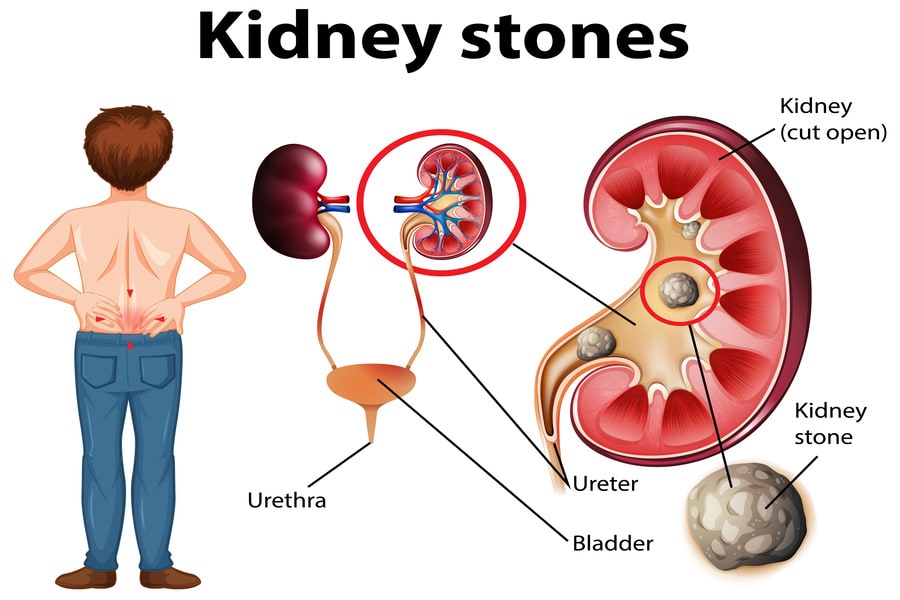Chronic Kidney Disease (CKD) is a condition characterized by the gradual loss of kidney function over time. This deterioration of renal function can lead to kidney failure, necessitating dialysis or a kidney transplant.
Overview
The kidneys, bean-shaped organs located at the base of the ribcage, play a crucial role in filtering excess wastes and fluids from the blood, which are then excreted through urine. As CKD progresses, dangerous levels of fluid, electrolytes, and wastes can accumulate in the body.
Symptoms
CKD often develops slowly and might not manifest noticeable symptoms until the disease is advanced. Some tell-tale signs include:
- Fatigue and weakness
- Swelling in ankles, feet, or hands
- Shortness of breath
- Nausea or vomiting
- Persistent itching
- Chest pain
- High blood pressure
Advanced CKD may cause:
- Muscle twitches and cramps
- Skin darkening
- Decreased mental sharpness
- Nosebleeds
- Loss of appetite
Causes
The most common causes of CKD are:
- Diabetes: High blood sugar can damage the blood vessels in the kidneys.
- High Blood Pressure: Persistent hypertension can strain and weaken the kidneys.
- Glomerulonephritis: Inflammation in the tiny filtering units of the kidneys.
- Polycystic Kidney Disease: A hereditary condition characterized by large cysts in the kidneys.
- Prolonged urinary tract issues: Including kidney stones, recurrent infections, or an enlarged prostate.
Risk Factors
Several factors can increase the risk of developing CKD:
- Age: The risk increases with age.
- Family History: A family history of kidney disease can raise risks.
- Ethnicity: African, Asian, and Native American descents face higher risks.
- Smoking: This can affect blood flow and hamper kidney function.
- Obesity: Extra weight strains the kidneys.
How to Avoid It
Adopting a kidney-friendly lifestyle can help delay or prevent CKD:
- Maintain a Healthy Weight: Regular exercise and a balanced diet are crucial.
- Monitor Blood Pressure: Keep blood pressure levels within the recommended range.
- Limit NSAIDs: Regular use of over-the-counter pain relievers can damage the kidneys.
- Limit Processed Foods: They often have high levels of sodium and phosphorus.
- Stay Hydrated: Adequate fluid intake ensures efficient waste excretion.
- Limit Alcohol: Moderation is key.
When to See a Doctor
If you notice any symptoms or have any of the mentioned risk factors, schedule an appointment. Early detection is vital. Doctors can conduct:
- Blood tests, to measure creatinine and urea levels.
- Urine tests, to check for abnormalities or protein.
- Imaging tests, like ultrasounds.
- Kidney biopsy, to assess kidney tissue.
Additional Helpful Information
- Diet: A diet low in sodium, potassium, and phosphorus is vital for CKD patients.
- Medications: Blood pressure medications, cholesterol drugs, or medications to treat anemia may be prescribed.
- Dialysis: In advanced stages, a machine filters and purifies the blood.
- Kidney Transplant: In end-stage kidney disease, a transplant may be the best solution.
Stages of CKD
CKD is classified into five stages based on the Glomerular Filtration Rate (GFR), which indicates how well the kidneys are filtering blood:
- Stage 1 (GFR > 90 mL/min): Kidney damage with normal or increased GFR. Kidney function is normal but urine findings, structural abnormalities, or genetic traits point to kidney disease.
- Stage 2 (GFR 60-89 mL/min): Mild reduction in GFR with kidney damage. The damage may be seen in blood or urine tests.
- Stage 3 (GFR 30-59 mL/min): Moderate reduction in GFR.
- Stage 4 (GFR 15-29 mL/min): Severe reduction in GFR, nearing kidney failure.
- Stage 5 (GFR < 15 mL/min or on dialysis): Kidney failure. Treatment options are dialysis or a kidney transplant.
Complications of CKD
- Fluid Retention: Leading to swollen limbs, high blood pressure, or fluid in the lungs.
- Hyperkalemia: Elevated potassium levels in the blood, which can affect heart function.
- Cardiovascular Diseases: Heart disease is a major cause of death for people with CKD.
- Decreased Immune Response: Increased vulnerability to infections.
- Pericarditis: Inflammation of the membrane surrounding the heart.
- Pregnancy Complications: High risks of fetal death, developmental disorders, or early labor.
- Decreased Sex Drive: As well as reduced fertility and erectile dysfunction.
Diagnostic Procedures
- Estimated Glomerular Filtration Rate (eGFR): A blood test to measure kidney function and determine the CKD stage.
- Albumin-to-Creatinine Ratio (ACR): Checks for protein in urine, indicating kidney damage.
- Glomerular Filtration Rate (GFR): The best measure of kidney function, helping determine the CKD stage.
Treatment Options
- Hemodialysis: A machine filters wastes, salts, and fluid from the blood.
- Peritoneal Dialysis: A fluid is placed into the patient’s abdomen to filter wastes and excess water.
- Kidney Transplant: A procedure where a failed kidney is replaced with a healthy kidney from a donor.
Lifestyle and Home Remedies
- Quit Smoking: Smoking can worsen kidney damage.
- Limit Over-the-counter Medications: Regular use of some over-the-counter pills can damage the kidneys.
- Manage Chronic Conditions: Such as diabetes and high blood pressure.
- Limit Protein Intake: Protein breakdown can affect kidney function. Consider talking to a dietitian.
In conclusion, CKD is a pervasive health issue affecting millions globally. Understanding its symptoms, causes, risk factors, and treatments allows for better management and prevention. Regular check-ups, leading a balanced lifestyle, and being informed are your best defense against CKD.
I hope this comprehensive overview provides a clearer understanding of Chronic Kidney Disease and its vast implications. Regular health check-ups and being proactive about kidney health are vital. The more we know, the better we can combat and manage this prevalent condition.


